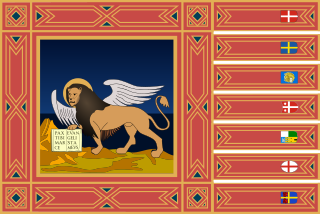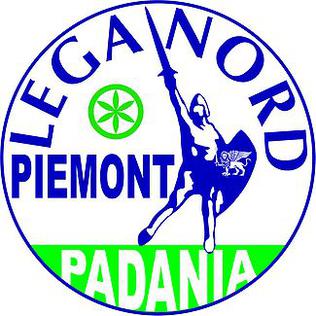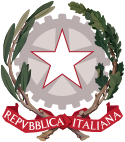
The Moderates are a centrist political party in Italy, active mainly in Piedmont, but also in Lombardy, Emilia-Romagna, Campania and Sicily. The party, whose leader is Giacomo Portas, is associated with the centrist party Italia Viva.
The Eccellenza is the fifth level of Italian football. It is a regional league, composed of 28 divisions divided geographically. All 20 regions are represented by at least one division except for Piedmont and Aosta Valley which share 2 divisions. Veneto, Tuscany, Sicily, Emilia-Romagna and Campania also have 2 divisions each, while the regions of Lombardy and Lazio have 3 divisions.

General elections were held in Italy on 16 November 1919. The fragmented Liberal governing coalition lost the absolute majority in the Chamber of Deputies, due to the success of the Italian Socialist Party and the Italian People's Party.
A regional council in Italy is the elected legislative assembly of a region of Italy. In Emilia-Romagna and Sicily, the legislative bodies are called the Legislative Assembly of Emilia-Romagna and the Sicilian Regional Assembly, officially nicknamed as Sicilian Parliament, respectively.

The politics of Veneto, a region of Italy, takes place in a framework of a semi-presidential representative democracy, whereby the President is the head of government, and of a pluriform multi-party system. Executive power is exercised by the Regional Government. Legislative power is vested in both the government and the Regional Council.

The Lega Nazionale Dilettanti is the league which rules amateur football of Italian Football Federation (FIGC) in Italy.

Lega Piemonte, whose complete name is Lega Piemonte per Salvini Premier, is a regionalist political party active in Piedmont. Established in 1987, it was one of the founding "national" sections of Lega Nord (LN) in 1991 and has been the regional section of Lega per Salvini Premier (LSP) in Piedmont since 2020.

The politics of Lombardy, a region of Italy, takes place in a framework of a semi-presidential representative democracy, whereby the President of the Region is the head of government, and of a pluriform multi-party system. Legislative power is vested in the Regional Council of Lombardy, while executive power is exercised by the Regional Government led by the President, who is directly elected by the people. The current Statute, which regulates the functioning of the regional institutions, has been in force since 2008.
The article provides an overview of the entire chain of command and organization of the Italian Army after the reform of 1 May 2024 and includes all active units as of 1 May 2024. The Armed Forces of Italy are under the command of the Italian Supreme Defense Council, presided over by the President of the Italian Republic. The Italian Army is commanded by the Chief of the Army General Staff or "Capo di Stato Maggiore dell’Esercito" in Rome.

A large round of regional elections in Italy took place on 28–29 March in 13 regions out of 20, including nine of the ten largest ones: Lombardy, Campania, Veneto, Lazio, Piedmont, Emilia-Romagna, Apulia, Tuscany and Calabria.

The 2010 Piedmontese regional election took place on 28–29 March 2010 as part of Italy's round of regional elections. Mercedes Bresso of the centre-left Democratic Party, the incumbent president of the region, lost her seat to Roberto Cota, leader of the Northern League Piedmont and floor leader of Lega Nord in the Italian Chamber of Deputies, who was backed also by The People of Freedom.

The 2010 Lombard regional election took place on 28–29 March 2010. The 9th term of the Regional Council was chosen.

The Italian regional elections of 1975 were held on 15 and 16 June. The fifteen ordinary regions, created in 1970, elected their second assemblies. Following the 1971 census, Piedmont, Veneto and Lazio had ten more seats each.

The Italian regional elections of 1980 were held on 8 and 9 June. The fifteen ordinary regions, created in 1970, elected their third assemblies.
The Italian electoral law of 2017, colloquially known by the nickname Rosatellum after Ettore Rosato, the Democratic Party (PD) leader in the Chamber of Deputies who first proposed the new law, is a parallel voting system, which acts as a mixed electoral system, with 37% of seats allocated using a first-past-the-post electoral system and 63% using a proportional method, with one round of voting. The Chamber and Senate of the Republic did not differ in the way they allocated the proportional seats, both using the largest remainder method of allocating seats.
Tecniche Perfette is an event linked to Italian hip hop, and in particular to freestyle rap.











